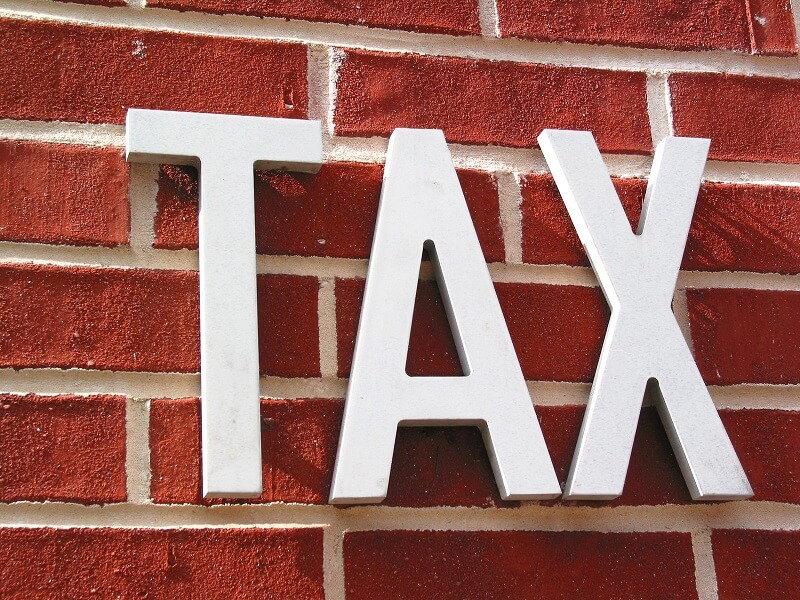
Property taxes don’t have a fixed cost; their expense varies on multiple changing factors. These aspects include the real estate’s actual value, its assessment rate, and the mill rate. It can be difficult to predict and budget around your property tax each year. In Colorado, you receive this bill soon after January 1st. You’ll then have to pay it all by April 30th. Although you won’t have a full year to determine and budget for your property tax’s specific value, you might still have the month before you receive that bill.
Some of the factors and methods that go into this annual payment can vary by county.
What is Property Tax?
You might feel frustrated at having to pay yet another expense. Homeowners must remember that this obligation contributes to funding for public schools, special districts, and other functions within your county. Property tax is known as an ad valorem. That means the value of a tax is determined by the price of the transaction or property. Essentially, your property tax depends on the current market value. Remember that the way this expense is calculated in Colorado can be vastly different from other states.
Assessment Rate
This value is a percentage based on other factors. It also depends on the type of property. Residential buildings have an assessment rate of 7.15% of their market value. For properties that don’t have that classification, they would have an assessment rate of 29% of their actual value. Professionals must assess your property every two years in Colorado. It’s usually on the odd-numbered years, like 2019 and 2021.
What is the Mill Rate?
A mill is one dollar per every $1000 of a property’s assessed value. Determiners represent the rate in the form of a percentage. If a property receives a tax of 11 mills, for example, then you’ll have a mill rate of 1.1%. Say your home’s assessed value is $100,000. A tax of 11 mills would equal $1,100. This total would then go towards the calculation of your total property tax.
The Formula for Property Tax
Once you have the real estate’s actual value, assessment rate, and mill rate, you can determine the final expense. Here’s the formula for it:
Actual Value x Assessment Rate x Mill Rate = Property Tax
Multiplying the property’s actual value by Colorado’s assessment rate will give you the real estate’s assessed total. You might receive this sum before getting the final tax amount. The assessed rate multiplied by the mill rate will yield the final tax amount. You could determine your property’s actual value and apply the necessary assessment percentage at any time of the year. However, taxing authorities determine the millage rate in December.
How to Determine if You Got an Incorrect Assessment
You might live in a neighborhood with homes that look identical to yours. You might find that one of the nearby residents might have a completely different property assessment to yours. If their house is built exactly like yours, then you might have a good reason to conclude that you received an incorrect evaluation. For example, one person’s property assessment could be $250,000. Their neighbor gets a total evaluation of $350,000. With these potential differences, homeowners must share their property assessments with their neighbors.
What to Do When You Have the Wrong Evaluation
The first thing you do is contact your county assessor’s office. You can ask them for a reevaluation. That might be challenging, as reassessments tend to be rare. They could be done only at certain times of the year or when the owner has made some renovations. That doesn’t mean you shouldn’t still try. The county assessor might not make mistakes often, but you might be one of those few cases where they have.
Once you confirm that a mistake was made, then you can make an urgent request for a reassessment. That is called an appeal.
Appealing to the Assessor
An appeal can come in the form of a spoken or written claim. You must speak your request to the assessor no later than June 1st for real property. If you’re sending a written appeal, then it must be postmarked on or before that date. The time is extended to June 30th if it’s personal property. There might be different ways to submit your claim based on your county. The instructions to do so are sometimes printed on the assessment.
Appealing to the County Board of Equalization
You should receive a response to your appeal for your real property by June and July 10th for your personal estate. If they do and you disagree with their reply, then you could send a request to the County Board of Equalization. You could also do that if you don’t get a response from the assessor. Remember that you must make that appeal by July 15th for real property or July 20th for your personal estate. The county board of equalization can decide on a hearing. If you’re dissatisfied with their decision, you can try the appealing process again with an arbitrator, Board of Assessment Appeals, or a district court.
Over- or Under-Assessment
You might think that your evaluation was higher than what you expected. Sadly, over-assessments are hard to fix. Even if you’re right, you’ll probably have to appeal to multiple layers of authorities before this error is fixed. There are also under-assessments. Regardless of what some may think, this mistake is not beneficial. The government will send you bills years later for expenses past due as a way to “correct” their miscalculation.
Paying Property Tax
You can pay this bill online or by calling a certain number from your county. There might be an additional fee for using your debit or credit card. You can make one or two equal payments if the bill is greater than $25. The deadline for the full expense is April 30th for the singular fee. If you’re making two payments, then the first one is due on the last day of February. The second half is due by June 15th.
Tax Relief
Various individuals can qualify for tax relief, including active members of the National Guard and Reserves, people with disabilities, and senior citizens. More specifically, senior citizens and disabled veterans can receive property tax exemptions through certain programs. People within these categories can qualify for various relief benefits. There’s the Property Tax Rebate, where you can have some of your property tax paid back to you. That can also apply to other kinds of expenses, like rent. You might also qualify for the Property Tax Work-Off Program, which allows recipients to do volunteer work in their community to pay some of their taxes.
The criteria for each of these benefits can vary. Sometimes you’ll have to be at least 60 years of age or older, and maybe you’ll additionally need to have lived in Colorado for at least a year. Your local county’s website should provide more details on eligibility, or you can give them a call.
Getting ready to pay this bill can get confusing if you’re trying to calculate it. The variables used, like assessment and mill rate, can change every year. That’s why it would be easier to utilize a property tax calculator online. The results might not be perfect, but it can give you an idea of how much you’ll pay next year. Some processes, including appealing and applying for tax relief, might get too complicated. Make sure you contact your local county offices for more information.
As always, for the most accurate and relevant information or advice, contact a certified tax expert in Colorado who can assist you based on your needs and circumstances.
